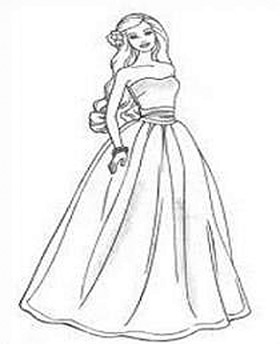- California Assembly OKs highest minimum wage in nation
- S. Korea unveils first graphic cigarette warnings
- US joins with South Korea, Japan in bid to deter North Korea
- LPGA golfer Chun In-gee finally back in action
- S. Korea won’t be top seed in final World Cup qualification round
- US men’s soccer misses 2nd straight Olympics
- US back on track in qualifying with 4-0 win over Guatemala
- High-intensity workout injuries spawn cottage industry
- CDC expands range of Zika mosquitoes into parts of Northeast
- Who knew? ‘The Walking Dead’ is helping families connect
The symbolic decline of Barbie Dolls
The previous year was disappointing for Mattel, the company known for popularizing Barbie dolls. Bryan Stockton, Mattel’s CEO, resigned January of this year and Christopher Sinclair has ben named the Interim CEO and will also succeed Stockton as chairman.
Sales of Barbie dolls, the iconic American toy, are plummeting. Recently, Mattel ceded its title as the world’s largest toy manufacturer to Lego.
It also lost its license to create dolls for the popular Frozen movie franchise to Hasbro.
According to revenue comparisons, this past season’s holiday sails are down approximately 59% from the year before.
It seems that a number of attempts to revive Barbie have failed. These include the interesting launches of Entrepreneur Barbie, as well as other sports themed and designer themed brands. Now Barbie makes up less than 20% of Mattel’s overall revenue.
While there are still plenty of Barbie fans, what does this possibly mean for the future of the company?
Psychologically, most of the consumers are purchasing the dolls as a nostalgic pathway for their younger selves; of course, this pertains mostly to older crowds. In a similar sense, some fans may be getting their hands on Barbie dolls as a way to become part of history.
In the larger scheme, this could also symbolize a resurgence of social awareness, sexuality, and superficiality. It is no secret that parents are reluctant to even subject their children to Barbie dolls because of the Barbie’s unrealistic proportions.
Dubbed the “Barbie Effect,” the theory purports that these unreal proportions make girls more self-conscious about their own body shapes and structures, leading to negative results.
The image problem has been controversial to say the least. In an age where Western media praises bikini bodies, long legs, and wide hips, Barbie dolls seem to be an accurate representation of the perfect body.
The rise of social media complements the pursuit of perfection by encouraging its young users to upload “selfies”or self-portraits of themselves onto the web for all to see and to criticize. It seems that social shares, likes, and comments are the new evolutionary results of the “Barbie Effect”.
Regardless, if the trends continue, it seems as if Barbie dolls are nearing its end in the coming years.
 |
Serin Lee Van Nuys High School 10th Grade |
















kelly
November 27, 2017 at 1:20 PM
yes..I like the basic concepts behind Second Life but it seems incredibly outdated and when I played it was intensely non-intuitive / user friendly to an extent that made EVE look like a game for toddlers. thanks from
togel online